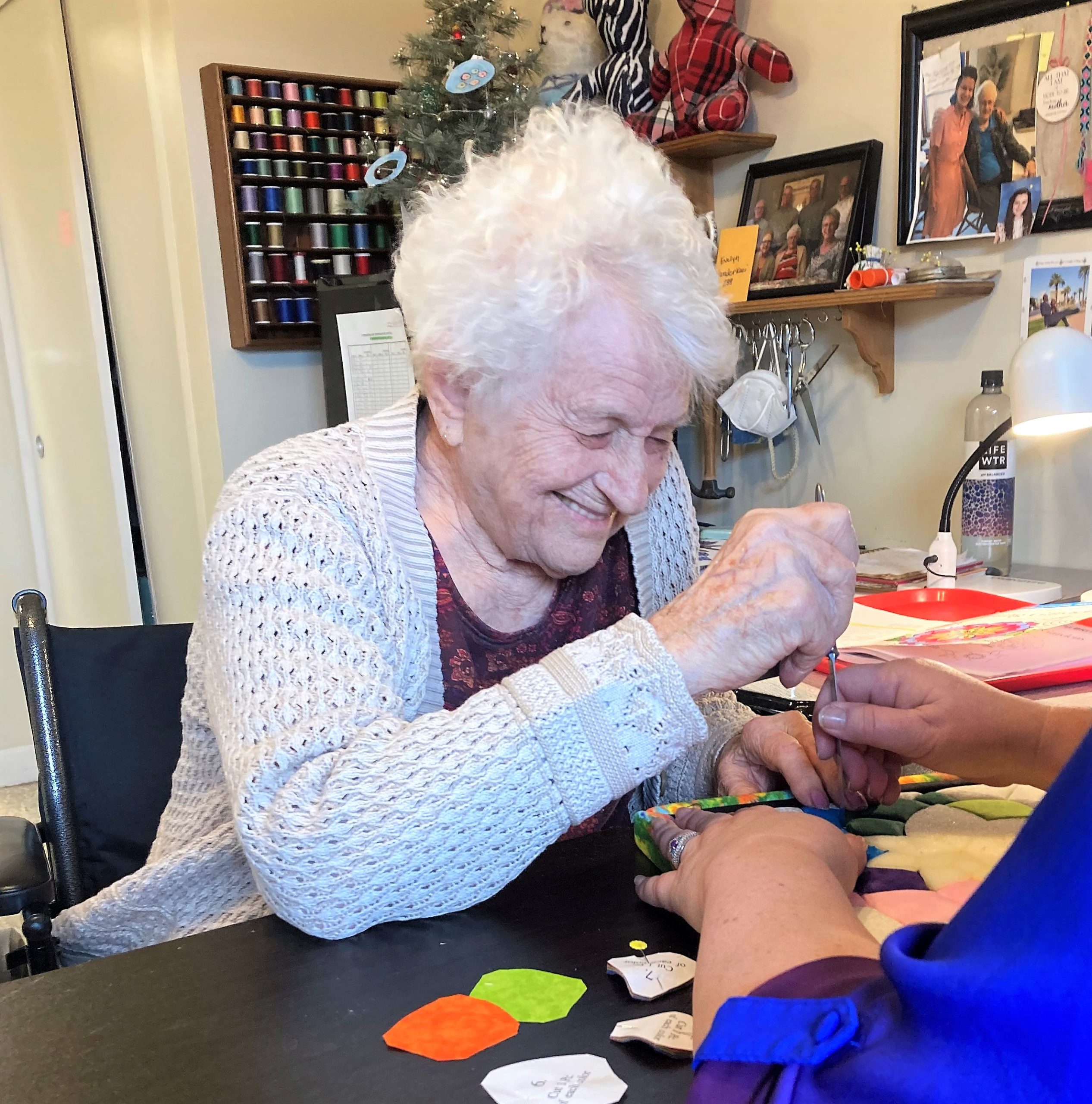Alzheimer’s disease. It takes lives and devastates loved ones. There is no cure.
And predictions for the future aren’t promising, as the number of Americans expected to suffer from Alzheimer’s is expected to soar from nearly 7 million today to nearly double that number by the year 2050.
All of which means it’s more important than ever to seek experts in providing care and support to those affected by this debilitating disease who are well-versed in its symptoms and comfort regimens – like those employed by Emmanuel Hospice for one.
“We are serving more patients with dementia than any other nonprofit community-based hospice in West Michigan,” says Melissa Wedberg, director of business development at Emmanuel. “Thirty-four percent of our patients’ primary diagnosis is dementia, and the most common form of dementia is Alzheimer’s, so we feel we are the experts in providing end-of-life care for this population.”
Emmanuel is uniquely qualified in part because since its inception, it has served a significant number of patients with Alzheimer’s in various settings, including from its founding partners – St. Ann’s Home, Sunset Senior Communities, Brio Living Services and Clark Retirement.
Because Alzheimer’s is a terminal diagnosis, individuals with this disease are often eligible for hospice services, which focus on providing comfort and dignity at the end of life.
“A lot of people think hospice is only for people who are actively dying, but the reality is that if we can get into the home sooner to establish support for patients with Alzheimer’s and their families, we can have a greater impact on their end-of-life experiences,” Wedberg says. “So we encourage families to explore hospice earlier because there is so much we can do for them as experienced caregivers.”
That includes a holistic approach including traditional medical care offerings as well as a wide array of complementary therapies and services – everything from music therapy to massage therapy to a specialized Art Legacy program that combines self-expression with symptom management.
Emmanuel also is practiced at addressing issues tied to agitation that Alzheimer’s patients often experience – episodes that can be extremely difficult for the caregivers of these patients.
“By intervening with our therapies, we can often limit the need for psychotropic medication,” Wedberg says.
More than 80% of the help provided to older adults in the United States comes from family, friends or other unpaid caregivers. This underscores the necessity of caregiver education, specifically how to respond to a patient who asks the same questions over and over again.
Wedberg also emphasizes that there is a need to increase awareness of – and funding for – dementia-related illnesses, since dementia annually kills more people than breast cancer and prostate cancer combined.
That sobering statistic also reinforces Emmanuel’s recommendation that patients and their families act early on “to establish that support and customization of their care that can be so comforting during these journeys of change.”
When people with dementia start hospice at the 11th hour, “it can feel like a panic and a rush and can be traumatic,” Wedberg says. “But if we can get in earlier and establish relationships and trust, especially with someone who is confused, it can be a much more meaningful and impactful experience.”
For more information, call 616.719.0919, or visit EmmanuelHospice.org.
